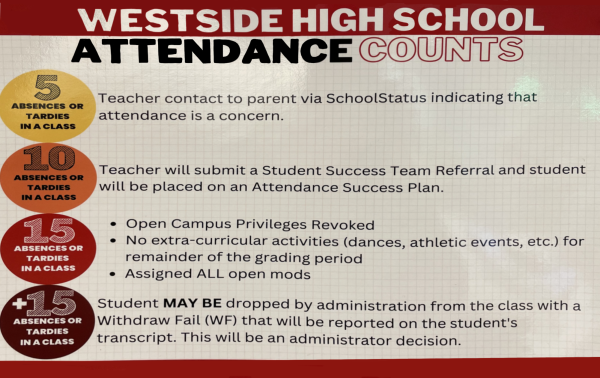Opinions: Controversy arises over sexual assault allegations

Scroll down to see the second opinion
Graphics by Jane Knudsen
Lauren Kugler, Wired Staff Writer
According to the National Opinion Research Center for Public Affairs, sexual misconduct is “viewed by both men and women as a pervasive problem in American society. It is one that occurs all too regularly with serious repercussions.”
One of the main problems in our world today is the lack of knowledge about the amount of false claims of sexual assault there really are. According to The Home Office research study, an estimated four percent of sexual misconduct allegations are false. False allegations may not seem worth paying attention to, but they can be life-ruining for both the accuser and the innocent person being accused.
Even when the claims are false, the people that are wrongly accused have to aggressively defend themselves in order to avoid conviction.
Coming out about sexual misconduct is becoming more prevalent, especially in Hollywood. Women today feel empowered to speak out. The movement #MeToo is a main cause of people feeling empowered to speak out. According to metoomvmt.org, “The #MeToo Movement has built a community of survivors from all walks of life.”
People feel stronger than they ever have before, because they know they have a community that will be there for them and support them. Because people feel empowered to speak out, more inaccurate claims are emerging.
English instructor Stephanie Heitmann agreed.
“Unfortunately, every false allegation makes it that much harder for people who have been harmed and abused to get justice, because I feel like every fake story adds cracks to all the real stories because it makes people skeptical. I feel like it makes it harder for victims to come forward who actually have been abused when people make up stories just to get publicity or whatever their reasoning might be.”
Punishments for sexual assault vary depending on the issue. Sexual misconduct is often considered a misdemeanor and may result in jail time, probation or fines. When sexual misconduct is charged as a result of an abuse of authority, a defendant may lose his or her job.
Sexual misconduct, depending on severity, can be a felony, which leads to a minimum of 20 years in prison along with fines. Years in prison does a number on a person, but going to prison without doing anything can hurt a person emotionally, mentally and physically.
According to Brett A. Podolsky, an attorney who experts in false allegations, there are many types of false allegations that include: someone close to the defendant, soon-to-be-ex-spouse using sexual misconduct for power, teenagers who are angry at their parents or step parents, children who are confused by outside information or tricked into believing a story, children and minors who are looking for attention and adults or minors who are looking for revenge or who want to ruin someone’s reputation. Other times a person may falsely report sexual misconduct in the hope of getting needed medical care or psychiatric medication.
No one should ever feel that falsely accusing someone of sexual misconduct will work out in the end. It only ends up hurting both parties.

Jane Glazer, Wired Editor-In-Chief
Since October of 2017, as several victims and predators of sexual assault came forward, more and more allegations of sexual assault have surfaced. As the amount of allegations have increased, so has the skepticism about the allegations. For several reasons, skepticism about reports of sexual assault is something as a society we need to move away from.
According to the National Sexual Violence Resource Center (NSVRC), the range of falsely reported sexual allegations is between two to eight percent. So skeptics, that means that 92 percent to 98 percent of the assaults one may be doubting or suspicious of have happened. False allegation reports may also be grouped with other types of reported sexual violence. These acts are often logged as “unfounded” or “no crime,” and are typically reported by a bystander. These situations are not false allegations, but as it can be difficult to differentiate them from false allegations, they may appear to be.
Secondly our culture often doesn’t question the legitimacy of reported acts of other crimes, such as stealing. As sexual assault is a crime, and we don’t doubt other types of crime, sexual misconduct shouldn’t be treated any differently. As a society, we should work to view sexual misconduct as an inexcusable, undoubted crime.
Sexual assault is an uncomfortable thing for many to discuss. It can be embarrassing, deteriorating and hard for people to come to terms with. If someone has built the courage to take action on mistreatment they have received, respect them. Those suffering from the trauma of sexual assault are often facing mental instability. According to the McGill Journal of Medicine, sexual assault is the most common cause of Post-traumatic Stress Disorder (PTSD) in women. Treating PTSD can help the victim decrease their PTSD symptoms, as well as regain a sense of self control. On the contrary, not believing, or discounting, some of those who share their story can worsen their mental state.
English teacher Molly Spisak said she agrees. She said she believes that in order for progress in society, we need to create a culture where reports of sexual misconduct are validated.
“It is important to honor a culture of truth,” Spisak said. “We have to validate people’s stories because if we’re going to have a shift in the culture, we have to begin to vocalize why and how it’s wrong, and if people stay silent there will never be a culture shift. By speaking the stories and continuing to educate people, [we] will continue to shift the culture, and then that’s how change happens.”
Although more and more reports of sexual allegations have been made, the gravity of each allegation should not be any less. It is important and inspiring that women now feel they have a voice and a safe platform to come forward with reports of sexual misconduct. Denying or discrediting any allegation is belittling to all women who have come forward in this time of empowerment.
Your donation will support the student journalists of Omaha Westside High School. Your contribution will allow us to purchase equipment and cover our annual website hosting costs.











